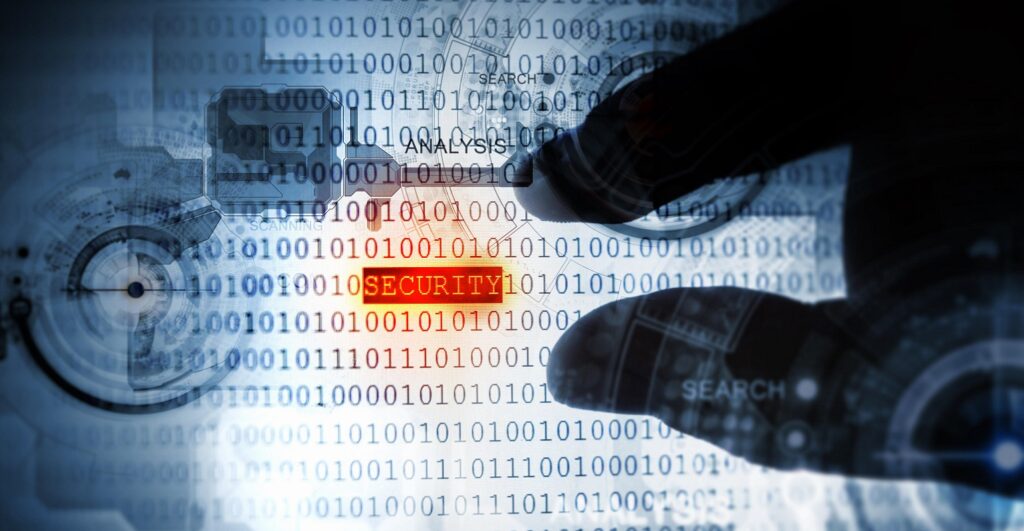Most cybersecurity analysts don't need to know how to code. But that doesn't mean they don't need to bother learning. If you work in the cybersecurity field, having at least basic programming knowledge will help you accelerate your career and tackle security challenges more efficiently.
With this reality in mind, keep reading for tips on what you need to know about programming to advance your cybersecurity career.
Why coding is important in cybersecurity
First, let's explain why learning to code is valuable for people in cybersecurity roles.
Again, programming skills are not strictly necessary for a career in cybersecurity. Most entry-level security jobs don't require any coding knowledge. In some cases, even experienced security professionals don't know how to code.
However, given that many of the security challenges cybersecurity analysts are tasked with solving involve code, understanding how code works is an important skill for analysts. The more you know about coding, the better your cybersecurity career will be.
Overall, it's worth noting that some niche areas of cybersecurity don't really benefit from coding.If you concentrate physical securityFor example, programming skills are less important because code does not play a large role in physical security risks.Similarly, the team focused on cybersecurity Incident response You may not need to know much about coding.
However, most other types of cybersecurity risks are concentrated in code. Specifically, it involves any application code (bugs can introduce security vulnerabilities such as: code injection and buffer overflow risk) or configuration code (which may contain oversights that expose resources to problems such as unauthorized access). The more you know about how your code works, the better equipped you will be to manage risk.
Alamy

Coding Basics for Cybersecurity Engineers
Of course, most cybersecurity engineers don't have the time to learn everything related to programming. Instead, you need to be strategic and focus on the aspects of coding that are most important to cybersecurity.
Learn how programming languages work
There are hundreds of programming languages, but even experienced developers typically know only a handful of them. Cybersecurity analysts should not be expected to learn a wide range of languages.
But learning at least one language can give you valuable insight into how code works and what kinds of mistakes developers can make that can lead to security flaws. Gain insight.concrete language of your choice Learning is not so important. In most cases, choosing a simple language like Python or JavaScript is fine.
Learn how infrastructure as code works
Similarly, most cybersecurity analysts would benefit from learning how to write the code that IT engineers use to provision resources, through a process known as Infrastructure as Code (IaC).
IaC code does not power your application. Instead, decide how your servers, network, and other IT resources are configured. Mistakes in IaC code, such as code that inadvertently exposes sensitive data resources to public access, can lead to security incidents.
Cybersecurity analysts don't need to be highly skilled in writing IaC code, but they can choose a popular IaC platform like Terraform and learn how to use it to configure their infrastructure. is worth your time. By doing so, you will gain a practical understanding of how security risks commonly occur in modern infrastructure.
Learn about CI/CD
learn how CI/CD pipeline Work is another fundamental skill that will help you advance your cybersecurity career. CI/CD pipelines are not code, so you don't actually have to write any code to work with CI/CD pipelines. These are just a set of tools and processes that developers rely on to write, build, test, and deploy code.
How do these tools and processes work together, and what types of security risks can arise during CI/CD operations, such as failure to restrict access to code repositories or continuous integration servers? Understanding is another way cybersecurity engineers gain insight into how security risks work. Originated from.
Learn Git
Git is an open source tool that most developers today use to manage their source code. If you work in cybersecurity, knowing how to run Git commands is probably not that important, but you should know the basics of how Git works: how developers check code into a Git repository, how to use Git, and more. including how to modify your code and the tests you can trigger via Git.
Again, many of the security issues analysts are tasked with addressing stem from oversights that occur during the Git process, so the more you know about Git, the better you can prevent Git-based security risks.
learn scripts
The ability to create basic scripts using languages like Bash, PowerShell, and Perl can help cybersecurity analysts automate parts of their workflows. For example, you can create scripts to automatically deploy security monitoring tools or transform data.
Maintenance scripts tend not to be a major source of risk (although they can be), so scripting skills are less important in understanding the sources of cybersecurity threats, but learning to write scripts is helps cybersecurity professionals work more efficiently.
Bottom line: Learn to code to enhance your security strategy
For most cybersecurity analysts, you don't need to be an experienced programmer who has mastered every aspect of programming from beginning to end. However, a basic understanding of basic aspects of programming, such as how to write application code, how to manage code through a CI/CD pipeline, and how to develop basic scripts, will help you understand cybersecurity. It will greatly help professionals level up. Coding is not a strict requirement, but investing a little time in developing your coding skills can pay big dividends in your cybersecurity career.
About the author
 Christopher Tozzi is a technology analyst with expertise in cloud computing, application development, open source software, virtualization, and containers. He also lectures at major universities in the Albany, New York area. His book, For Fun and Profit: A History of the Free and Open Source Software Revolution, was published by his MIT Press.
Christopher Tozzi is a technology analyst with expertise in cloud computing, application development, open source software, virtualization, and containers. He also lectures at major universities in the Albany, New York area. His book, For Fun and Profit: A History of the Free and Open Source Software Revolution, was published by his MIT Press.


